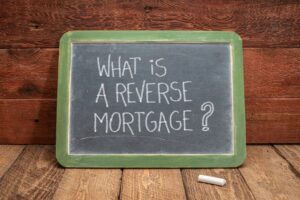For homeowners aged 62 and older, a reverse mortgage provides a way to access tax-free cash by tapping into the equity in their home without needing to sell or move. Unlike traditional loans, a reverse mortgage does not require monthly mortgage payments; instead, repayment is deferred until the home is sold, the owner moves out, or the last borrower passes away.
This loan option is especially beneficial for retirees looking to supplement their fixed income, cover daily expenses, fund medical care, or finance home improvements—all while continuing to live in and maintain ownership of their home. Eligibility requires the property to be the borrower’s primary residence, and homeowners must stay current on property taxes, homeowner’s insurance, and home maintenance.
“Reverse mortgages can provide older homeowners with the financial flexibility they need to enjoy retirement and meet unexpected expenses,” says American Senior Lending Loan Officer Marcus Powell. With careful consideration, a reverse mortgage can serve as a strategic solution for those looking to age in place while using their hard-earned equity to support their financial goals.
Homeowners are encouraged to consult a qualified lender or financial advisor to understand the loan’s features and determine if it’s the right fit for their situation.
 At its core, a reverse mortgage is a loan that allows homeowners to borrow against the equity they’ve built in their homes. Unlike a traditional mortgage, there are no monthly mortgage payments. Instead, the loan is repaid when the borrower no longer lives in the home, typically when the home is sold, or the homeowner passes away.
At its core, a reverse mortgage is a loan that allows homeowners to borrow against the equity they’ve built in their homes. Unlike a traditional mortgage, there are no monthly mortgage payments. Instead, the loan is repaid when the borrower no longer lives in the home, typically when the home is sold, or the homeowner passes away.
The most common type of reverse mortgage is the Home Equity Conversion Mortgage (HECM), which is federally insured by the FHA and comes with certain protections for borrowers.
“A reverse mortgage gives seniors the opportunity to access the wealth tied up in their homes without the burden of selling the property or moving,” says John Thompson, an expert in senior financial solutions.
When you take out a reverse mortgage, the lender makes payments to you in a variety of formats: a lump sum, monthly payments, or a line of credit. The amount you can borrow depends on several factors:
Because the loan is secured by your home, you are still responsible for maintaining it and keeping up with property taxes and homeowners insurance.
According to the National Reverse Mortgage Lenders Association (NRMLA), “Over a million households have utilized a reverse mortgage to achieve greater financial security in retirement.”
While a reverse mortgage has several advantages, there are some key considerations to keep in mind:
Reverse mortgages are gaining popularity as more seniors look for ways to boost their income. According to NRMLA, there were over 600,000 active HECM loans in the U.S. as of 2023, demonstrating the growing acceptance of this financial tool. Additionally, a study from the Consumer Financial Protection Bureau (CFPB) found that 74% of reverse mortgage borrowers reported being satisfied with their decision to take out the loan.
A reverse mortgage can be a powerful financial tool for seniors who want to supplement their income, avoid monthly mortgage payments, and stay in their homes. However, it’s crucial to consider the full implications, including the potential impact on your estate and the ongoing costs of homeownership.
Before making a decision, it’s advisable to speak with a HUD-approved reverse mortgage counselor to explore whether this option aligns with your long-term financial goals.
Corporate Headquarters


HighTechLending Inc, doing business as American Senior Lending is an Equal Housing Lender, NMLS ID #7147 (www.nmlsconsumeraccess.org). 2030 Main Street, Suite #500, Irvine, CA 92614. AZ Mortgage Banker License # 0912577; Licensed by the Department of Financial Protection and Innovation under the California Residential Mortgage Lending Act, License #4130937; CO Mortgage Company Registration – Regulated by the Division of Real Estate; CT Mortgage Lender License #ML-7147; FL Mortgage Lender Servicer License #MLD1409; Georgia Residential Mortgage Licensee, License #53077; HI Mortgage Loan Originator Company License and Service License #HI-7147; ID Mortgage Broker/Lender License # MBL-2080007147; Illinois Residential Mortgage Licensee, License #MB.6761112 (for licensing information, go to: www.nmlsconsumeraccess.org), IL Residential Mortgage License # MB.6761112, Illinois Department of Financial and Professional Regulation, Division of Banking, 100 West Randolph, 9th Floor, Chicago, IL 60601, 1-888-473-4858; MD Mortgage Lender License #21762; ME Supervised Lender License #7147; MI Mortgage Broker/Lender/Servicer License #FR0026128 – 2nd TD Mortgage/Broker/Lender/Servicer License #SR0026129; NC Mortgage Lender License #L-165611; NH Mortgage Banker License #27178-MB; NJ Residential Mortgage Lender License, Licensed by the N.J. Department of Banking and Insurance; NM Mortgage Loan Company; NV Mortgage Company License #4517; OH Residential Mortgage Lending Act Certificate of Registration #RM.805365.000; OR Mortgage Lending License #ML-4386 and Servicer License #MS-139; PA Mortgage Lender #49892; Rhode Island License Lender, Rhode Island Licensed Loan Broker, RI Lender License #20244771LL – Loan Broker License #20244772LB; SC Mortgage Lender/Servicer License #MLS-7147; TN Mortgage License #7147; TX Mortgage Banker Registration; UT Residential First Mortgage Notification and Mortgage Entity License #8874117; Virginia Broker and Lender Licenses #MC-5962; WA Consumer Loan Company License #CL-7147.
Eric is a distinguished leader in the mortgage industry, with over 22 years of experience and 16 years focused on reverse mortgages for seniors. As Vice President of Consumer Direct at Reverse Mortgage Funding (RMF), he built and led a top-performing sales team of 90+ mortgage loan officers, securing RMF’s position as a top three lender and servicer monthly. Simultaneously, he co-led a retail team of 125+ outside originators, further expanding RMF’s market dominance.
Before RMF, Eric propelled Liberty Reverse Mortgage (formerly Genworth Financial) to the number one reverse mortgage retail lender in the nation by establishing a 100+ employee call center and managing 90+ nationwide loan originators.
Eric plays a pivotal role in marketing, enhancing referral partnerships, direct-to-consumer initiatives, and wholesale efforts through his leadership. His success is driven by data and performance tracking. Licensed in 11 states and a California Department of Real Estate Broker, Eric’s proven track record of leadership and innovation is poised to attract significant investment opportunities.